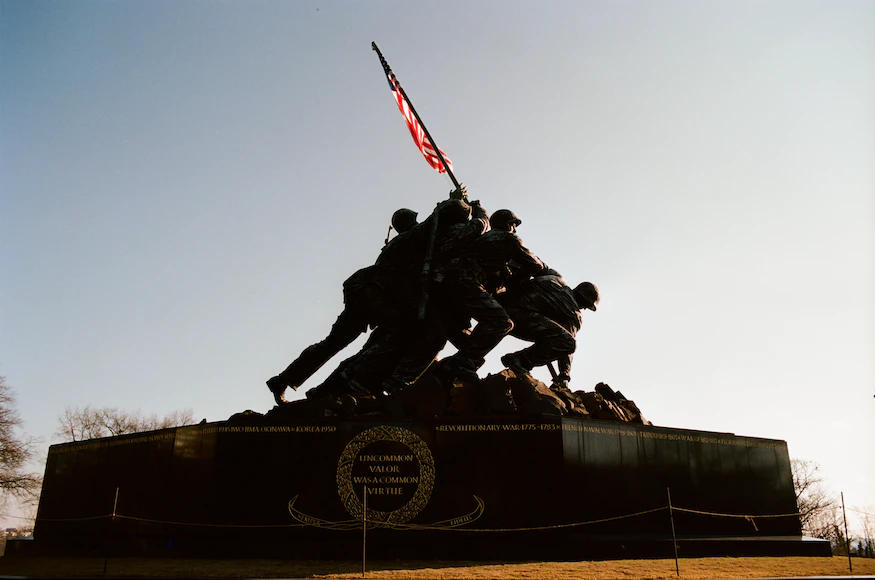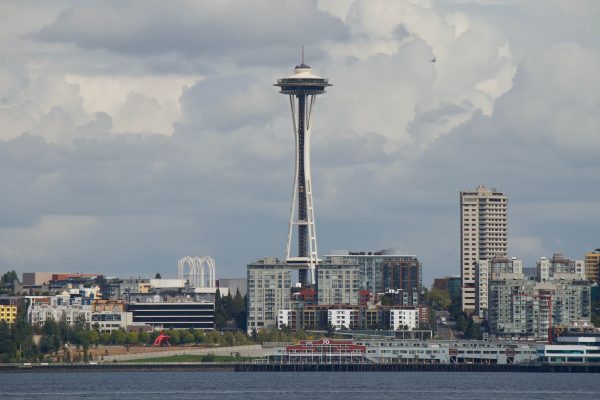North Carolina’s military history is a captivating blend of stories that span from colonial times to the present day. The American Battlefield Trust reports that North Carolina played a significant role in both the Confederate and Union war efforts during the four years of the Civil War.
Notably, the state provided a substantial number of soldiers, with approximately 130,000 North Carolinians serving in various branches of the Confederate Army. This is just one of the many examples of North Carolina’s pivotal contribution to American military history.
Those with a passion for history and seekers of adventure can explore the state’s diverse military sites, offering an immersive journey through time. Whether exploring well-preserved forts or solemn memorials, six exceptional destinations offer insights into North Carolina’s rich military legacy.
Table of Contents
Fort Macon State Park
Located on the pristine Crystal Coast, Fort Macon State Park offers an immersive experience of 19th-century military life. This pentagonal-shaped fort played significant roles during the Civil War and World War II.
You can explore its well-preserved barracks, cannons, and coastal defenses while taking in breathtaking ocean views. History comes alive through reenactments and interpretive exhibits, transporting visitors back to pivotal moments in North Carolina’s past.
Fort Macon State Park presents an exceptional blend of military history and outdoor leisure, complemented by its scenic surroundings. According to a blog post by Our Escape Clause, the beach at Fort Macon is everything you hope for in a North Carolina beach. Its sandy, pristine shores, rolling waves, captivating sand dunes, and breathtaking sunrises and sunsets make it a perfect coastal destination.
Families particularly cherish the added conveniences like free parking, lifeguards during summer, a seasonal concession stand, and shaded picnic areas.
Camp Lejeune Military Base
As one of the largest Marine Corps bases in the world, Camp Lejeune is a place where history, heroism, and environmental challenges intersect. From the 1950s to 1987, the base faced a tragic incident that had lasting consequences.
During this period, the drinking water at Camp Lejeune was contaminated with hazardous chemicals. This included volatile organic compounds (VOCs) and other toxic substances, due to leaking underground storage tanks and improper waste disposal.
As noted by TorHoerman Law, ongoing legal proceedings aim to hold those responsible for the contamination and its severe repercussions accountable. Moreover, advocacy efforts are in action to increase public awareness about the incident and its lasting impact on the affected individuals.
While there has been no payout for Camp Lejeune lawsuits thus far, the pursuit of justice and restitution serves as a powerful testament to the unwavering dedication to holding accountable those who caused the past harm. The struggle for justice and compensation stands as a poignant reminder of the resolute commitment to seeking accountability for the injustices of the past.
Before visiting, it’s worth noting that much of the base is restricted. However, visitors can pay their respects at the Lejeune Memorial Gardens, honoring fallen marines. Additionally, visitors can gain insight into the rich history and heroism of the Marine Corps by visiting the Camp Lejeune Museum, located near the main gate. The museum offers a comprehensive display of artifacts, photographs, and exhibits that narrate the base’s illustrious past and the brave individuals who have served there.
Battleship USS North Carolina
Moored proudly on the Cape Fear River in Wilmington, the battleship USS North Carolina serves as a living testament to the valor of World War II sailors. Visitors can step aboard this awe-inspiring vessel and wander through its decks, gun turrets, and crew quarters. Interactive exhibits and personal accounts shed light on the battleship’s role in the Pacific theater, offering a glimpse into life at sea during wartime.
The USS North Carolina offers a window into the past, allowing visitors to envision life aboard a battleship during World War II. The on-deck exhibits and audio tours provide a deeper understanding of the challenges faced by sailors and the camaraderie that developed among the crew. Exploring the ship’s tight quarters and massive gun batteries offers a sense of the sacrifices made by those who served on this storied vessel.
Guilford Courthouse National Military Park
History comes alive at Guilford Courthouse National Military Park, where the American Revolution’s Southern Campaign reached a crucial turning point. People can stroll through lush greenery and witness where General Nathanael Greene’s forces clashed with the British army in 1781.
The visitor center’s exhibits and guided tours provide context and insight into this pivotal battle. Guilford Courthouse National Military Park is a place of reflection and learning, inviting visitors to step into the shoes of the soldiers who fought on these hallowed grounds.
According to a blog post by NC Tripping, Guilford Courthouse National Military Park is accessible every day of the week, operating from 8:30 am to 5:00 pm. However, it remains closed on Thanksgiving Day, Christmas Day, and New Year’s Day. It’s essential to be aware that the park’s amenities may also close during extreme weather or unforeseen events.
The park’s serene atmosphere and educational programs create a memorable experience for both adults and children. Understanding the significance of this battle sheds light on the complexities of the American Revolution and the contributions of those who fought for independence.
Airborne & Special Operations Museum
In Fayetteville, home to Fort Bragg, the Airborne & Special Operations Museum showcases the storied history of elite paratroopers and special operations forces. The museum features interactive exhibits, artifacts, and life-sized dioramas that offer an immersive experience of airborne jumps and daring missions.
The Airborne & Special Operations Museum provides a fascinating glimpse into the world of highly trained military units. Tourists can gain an appreciation for the physical and mental demands of airborne operations through hands-on exhibits and virtual reality experiences. The museum’s tributes to fallen soldiers honor the sacrifices made by these brave men and women, making it a poignant and educational destination.
Fort Fisher State Historic Site
At the mouth of the Cape Fear River, Fort Fisher State Historic Site provides insight into the Civil War’s closing chapters. This Confederate stronghold protected Wilmington’s vital supply routes, making it a strategic target for Union forces.
You can tour the remains of the fort and explore the adjacent museum to better understand the events that unfolded during the war’s final days. Fort Fisher State Historic Site is a treasure trove of Civil War history, offering a glimpse into the pivotal moments that shaped the course of the conflict.
Walking through the fort’s ruins and hearing stories of the fierce battles that took place here provides a tangible connection to the past. The site’s location near the coast also allows for beachcombing and birdwatching, making it an ideal destination for history enthusiasts and nature lovers alike.
Final Thoughts
North Carolina’s military sites hold an incredible wealth of history, from the Civil War to World War II and beyond. These destinations not only preserve the past but also offer immersive experiences, allowing visitors to step into the shoes of soldiers and understand their sacrifices.
The sites evoke a profound appreciation for the state’s pivotal contributions to American military history. From the tragic legacy of Camp Lejeune to the valor of the USS North Carolina battleship’s crew, each location offers unique insights into the resilience and heroism of those who served. Exploring these historic sites is a powerful way to connect with North Carolina’s rich military legacy.




